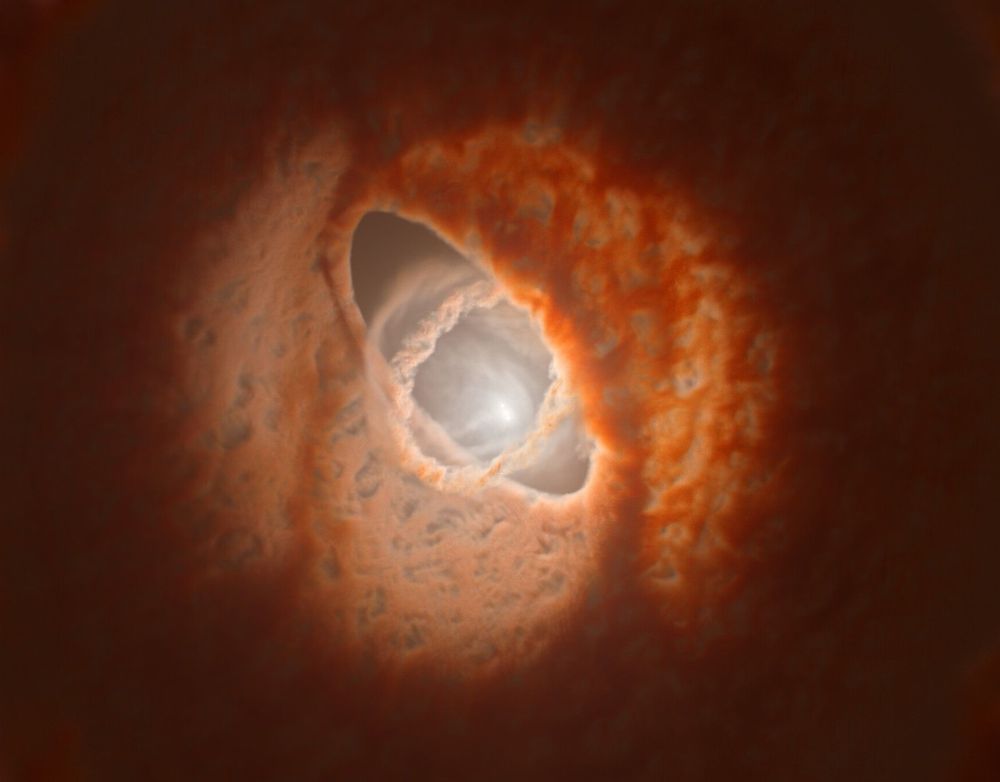Disc is left with warped and tilted rings.
The young triple star system GW Orionis appears to be surrounded by a ring of gas and dust that has torn away and become misaligned with the rest of the system’s circumstellar disc. That is the conclusion of an international team of astronomers led by Stefan Kraus at the University of Exeter – who combined observations with numerical simulations to identify disc structures that have been confined to theory until now.
Astronomers believe that most stars are born with one or more companions, which interact in complex ways with the disc of planet-forming gas and dust surrounding the stellar system. If this disc is misaligned with the orbital planes of the host stars, previous simulations have predicted that it will warp and tear under their gravitational torque, forming distinct rings in separate planes from the rest of the disc. So far, however, astronomers have yet to identify this tearing in their observations of misaligned discs.
In their study, Kraus’ team aimed to verify this tearing process by making detailed observations of the triple star system, GW Orionis. At just around 1 million years old, the system’s circumstellar disc has yet to collapse to form planets; while at its centre, the orbital planes of its three stars are highly misaligned with each other. Over 11 years beginning in 2008, the researchers used the Very Large Telescope (VLT) and Atacama Large Millimeter Array (ALMA) telescopes in Chile to measure thermal emissions and scattered visible light originating from the system. This allowed them to map the distribution of material in the disc.
